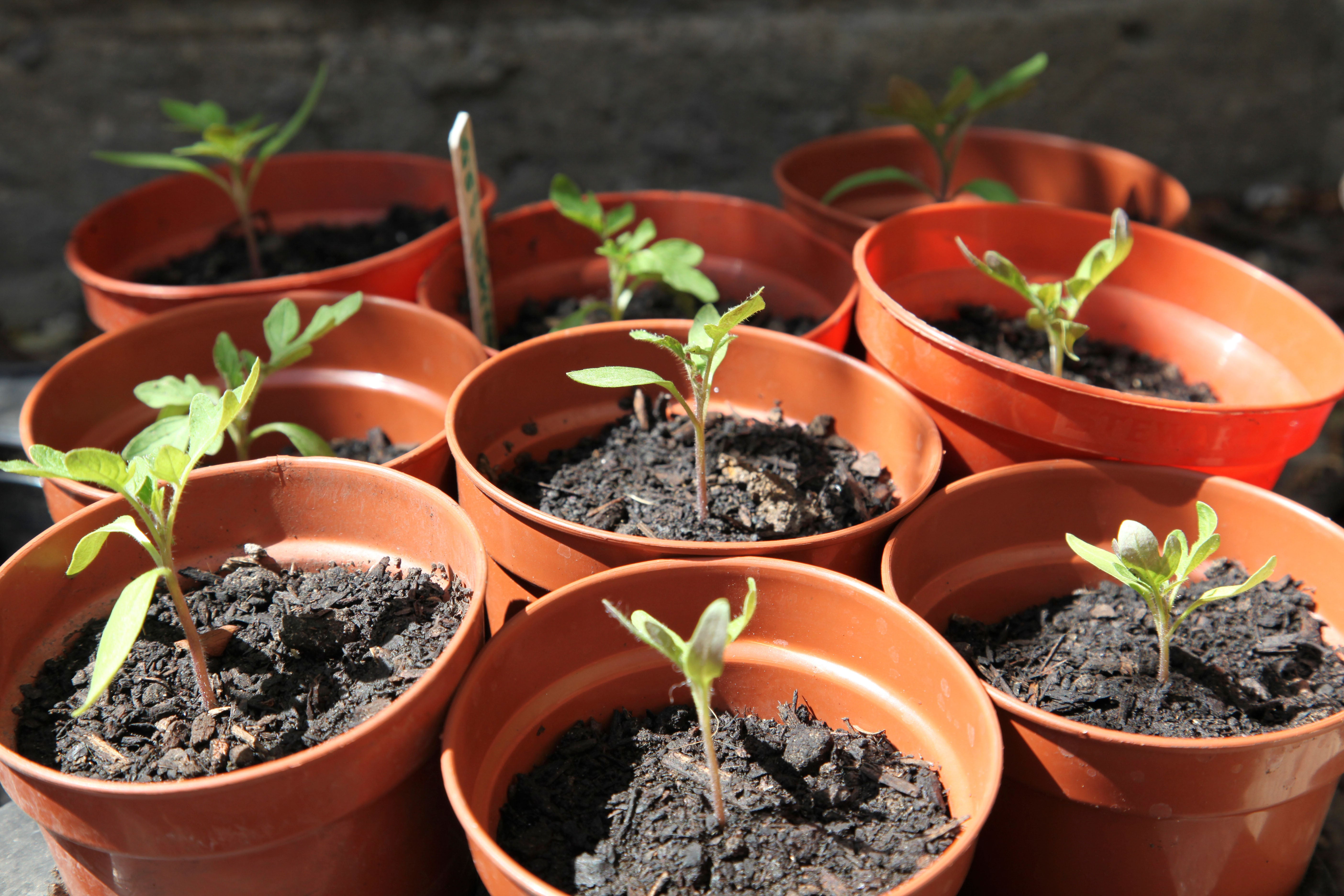When is it safe to plant out tender veg?
Garden expert Alys Fowler offers advice on ways to protect tender crops from the worst of the elements.

Your support helps us to tell the story
From reproductive rights to climate change to Big Tech, The Independent is on the ground when the story is developing. Whether it's investigating the financials of Elon Musk's pro-Trump PAC or producing our latest documentary, 'The A Word', which shines a light on the American women fighting for reproductive rights, we know how important it is to parse out the facts from the messaging.
At such a critical moment in US history, we need reporters on the ground. Your donation allows us to keep sending journalists to speak to both sides of the story.
The Independent is trusted by Americans across the entire political spectrum. And unlike many other quality news outlets, we choose not to lock Americans out of our reporting and analysis with paywalls. We believe quality journalism should be available to everyone, paid for by those who can afford it.
Your support makes all the difference.It’s just about time to plant out tender veg safely – or is it?
The rise and fall of temperatures this spring – April started off warm and dry, but ended up being the frostiest April in 60 years – has left some gardeners in a quandary about when to plant out their tender edibles, including courgettes, tomatoes and chillies.
Gardening expert, bestselling author and presenter, Alys Fowler, says that a handful of tender crops need to bake in warm conditions, and sulk if they are subjected to cold and wet.
“Chillies, tomatoes and aubergines should have already been sown, although you could get away with sowing courgettes and possibly sweetcorn in mid-May,” says Fowler, whose new book Eat What You Grow offers a wealth of advice on growing fruit and veg.
As a general rule, tender plants that have been sown indoors can be taken outside between mid-May and early June, depending on where you live, but only when all danger of frost has passed.
Tender plants will need to be hardened off – acclimatised gradually and with protection, whether it be a cold frame, greenhouse, sheltered porch or under a cloche, she advises.
Tomatoes
“To have good tomato growth you need night-time temperatures to remain above 10 degrees, and preferably 14-15C. The cold spring doesn’t mean they can’t go outside, but they really do need to be protected.
“They need to be in a patio greenhouse, or something like that. You can use a cold frame but really the best tomatoes are grown in a greenhouse in this country.
“Growing them outside means you are growing them really late and you won’t get tomatoes until September. They need heat and sun to ripen. Don’t expect to be eating them in June.
“Some varieties are better for growing outside, such as ‘Gardener’s Delight’, ‘Kenilworth’ and ‘Matt’s Wild Cherry’.”
She says hardening off takes two or three weeks, and don’t just turf them out on a really sunny day, as the change in conditions can cause the plants stress and they may wilt as they try to adjust.
Top tip: “The more room that you give your tomatoes, the better they will grow. Put them in the biggest pot you possibly can. The more root mass, the healthier the plant. And as soon as you see the flowers, start feeding the plant every week.”
Chillies
“Chillies are like tomatoes, they really need heat. They come from South America and want to bask in the heat. A good place to grow them is on your windowsill, but if you are growing them outside, it needs to be a really sheltered, sunny spot like a sunny courtyard or patio.
“They make a lovely houseplant, although some grow to 5ft, while others are really small such as ‘Prairie Fire’, which would work on a windowsill. The chillies start off yellow and ripen to bright red.”
She notes that chillies are hungry, so will need potting on a lot more regularly than tomatoes, in fact every time the roots stick out of the bottom of the drainage holes, you’ll need to pot them on. And once flowers appear, feed them weekly, she advises.
Top tip: “Some varieties produce a king chilli, which is the first fruit which appears on the first axis of the plant. Take it off, otherwise it will prevent further flowering by concentrating a lot of the growth into this single fruit.”
Courgettes
“Put them out too early and you may get lots of male flowers when it’s cold, which will mean flowers and no courgettes, which is frustrating. The only thing to do is wait for it to warm up.
“Courgettes are big plants and people tend to put them slightly too close together. They really are better 2.5-3ft apart.”
Top tip: “Keep picking them when they are small and they will keep producing. If you let them grow into marrows they start to think that the end of their days are coming and they won’t produce so many.”
Sweetcorn
“If you haven’t sown it already, you can still sow sweetcorn in May, preferably indoors in pots. The minute they’ve got to a good size – thicker than a pencil – get them in the ground when all danger of frost has passed.
“They are wind-pollinated, so you need to plant them in a block so that you raise the chances of the pollen hitting a neighbour. Plant them between 15-18 inches apart ideally. They don’t need staking but keep them out of a direct wind tunnel.
“Sweetcorn are easy to grow but they will need a fairly good summer to produce good cobs.”
Top tip: “If you think they’re getting rocked about too much, you can draw up the soil around the base.”
Eat What You Grow by Alys Fowler is published by Kyle Books priced £22. Available now